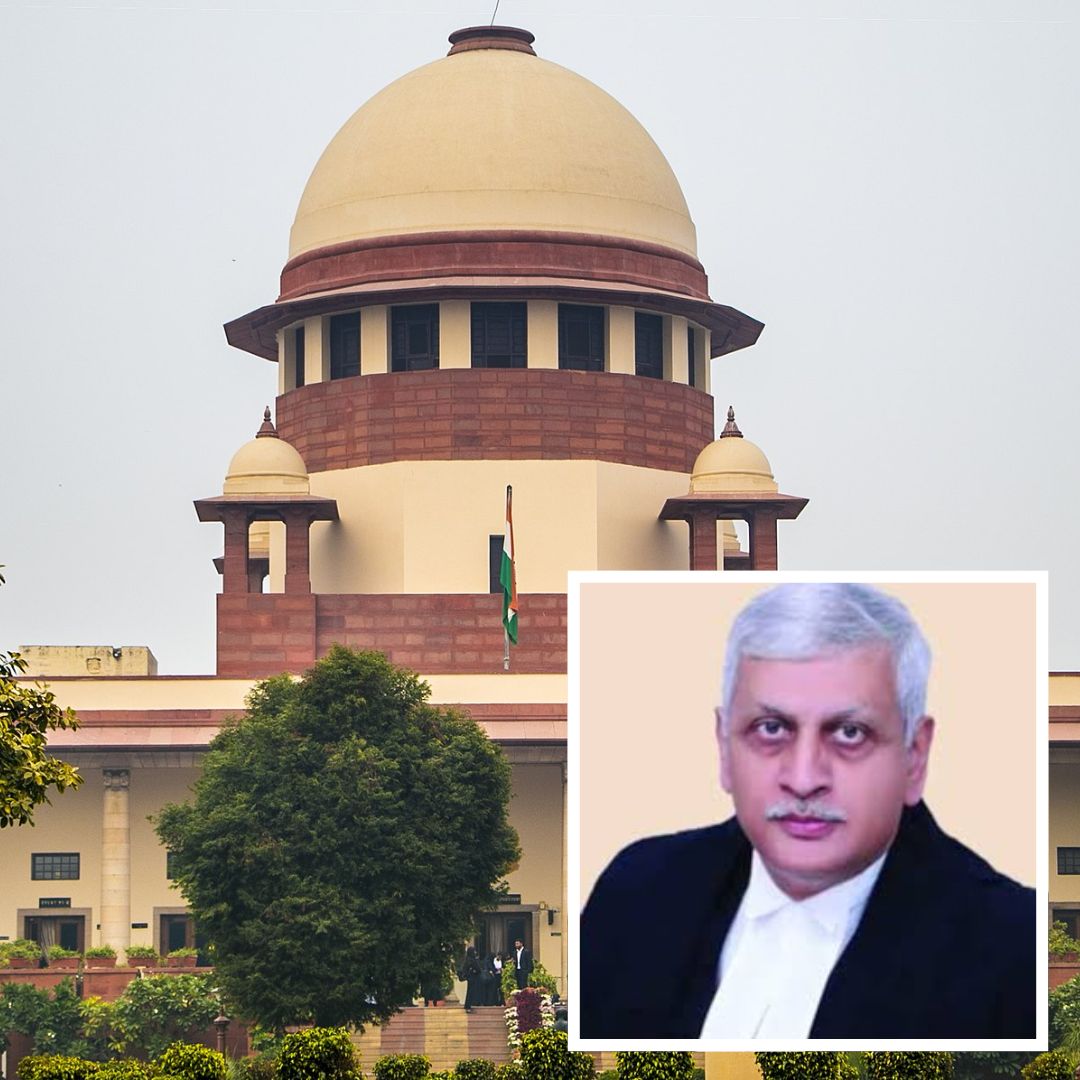
Image Credit: Twitter/ Rokhthok Marathi, Wikimedia
Social Justice To Country's Poor? SC Upholds 10% Quota For EWS, Says 'No Violation Of Constitution'
Writer: Ronit Kumar Singh
A confident and reliable journalist who always desires to toss the unheard voices. I cover politics and governance extensively through stories.
India, 8 Nov 2022 11:52 AM GMT
Editor : Shiva Chaudhary |
A post-graduate in Journalism and Mass Communication with relevant skills, specialising in content editing & writing. I believe in the precise dissemination of information based on facts to the public.
Creatives : Ronit Kumar Singh
A confident and reliable journalist who always desires to toss the unheard voices. I cover politics and governance extensively through stories.
The Supreme Court's major verdict on November 7 validated the 10 per cent quota for Economically Weaker Sections (EWS) in education and government jobs. The decision was taken by a five-judge bench, with a 3:2 split verdict.
In a crucial judgement, the Supreme Court (SC) upheld the validity of the 103rd amendment to the Constitution, which provides a 10 per cent reservation to people belonging to the Economically Weaker Section (EWS) in government jobs and education.
The decision was taken by the five-judge bench of the SC, where Justices Dinesh Maheshwari, Bela M Trivedi, JB Pardiwala ruled in favour of the EWS reservation and Chief Justice of India UU Lalit and Justice S Ravindra Bhat dissented the ruling.
3:2 Split Verdict: What It Means?
The reservation system for the EWS quota has been ruled out with a 3:2 split verdict- which means that three judges ruled out in favour of the EWS reservation system, and two judges dissented.
Justice Dinesh Maheshwari, who ruled in favour, mentioned, "EWS quota does not violate equality and the basic structure of the Constitution. Reservation in addition to an existing reservation does not violate provisions of the Constitution."
Meanwhile, Justice S Ravindra Bhat, who differed in opinion, said, "Reservations were designed as a powerful tool to enable equal access. Introduction of economic criteria and excluding SC, ST, OBC, saying they had these pre-existing benefits is injustice."
How People Reacted To SC's Ruling?
After the SC ruling, several people took to social media platforms to express their thoughts, some in favour, while others stood against it.
A Twitter user, while mentioning the historic judgement, said, "There is always one section in society who were always discriminated, irrespective of the historical timeline and caste. They are the poor. This section is discriminated in the past and will be in the future. EWS quota is not a panacea, a beginning and not an end."
There is always one section in society who were always discriminated, irrespective of the historical timeline and caste. They are the POOR. This section is discriminated in the past and will be in the future. #EWS quota is not a panacea.. a beginning and not an end.#Reservation pic.twitter.com/7scMyqQAKn
— PRIYANKARAO DANDI (@d_priyankarao) November 7, 2022
The National Working General Secretary of the All India Students' Association, Prasenjeet, said, "Supreme Court's decision on EWS Quota is unfortunate and disappointing as it violates the basic spirit of the Constitution."
Another Twitter user wrote, "One is poor if they earn less than around Rs.4800/- per month. For the EWS quota, one is poor if they earn less than Rs.66,666/- per month. WHY?"
Taking note of the income criteria, another user wrote on Twitter, "Non-SC-ST-OBCs are eligible for #EWS quota benefits if their parents' annual income is up to ₹8 lakh per year, but SC and ST students are not eligible for Union Govt scholarship if their parents' income is more than ₹2.5 lakh per year."
Non SC-ST-OBCs are eligible for #EWS quota benefits if their parents annual income is up to ₹8 lakh per year but SC and ST students are not eligible for Union Govt scholarship if their parents income is more than ₹2.5 lakh per year!
— Dilip Mandal (@Profdilipmandal) November 7, 2022
Thanks @_ambedkarite for pointing this out. pic.twitter.com/VM2hXCogad
According to a report by Press Information Bureau, the annual income limit of the family from all sources for the EWS group of the General category for availing the benefit of reservation is fixed at ₹ 8 lakh. Many people have also questioned if it's the proper criteria set by the government to decide if someone is economically backward.
 All section
All section














